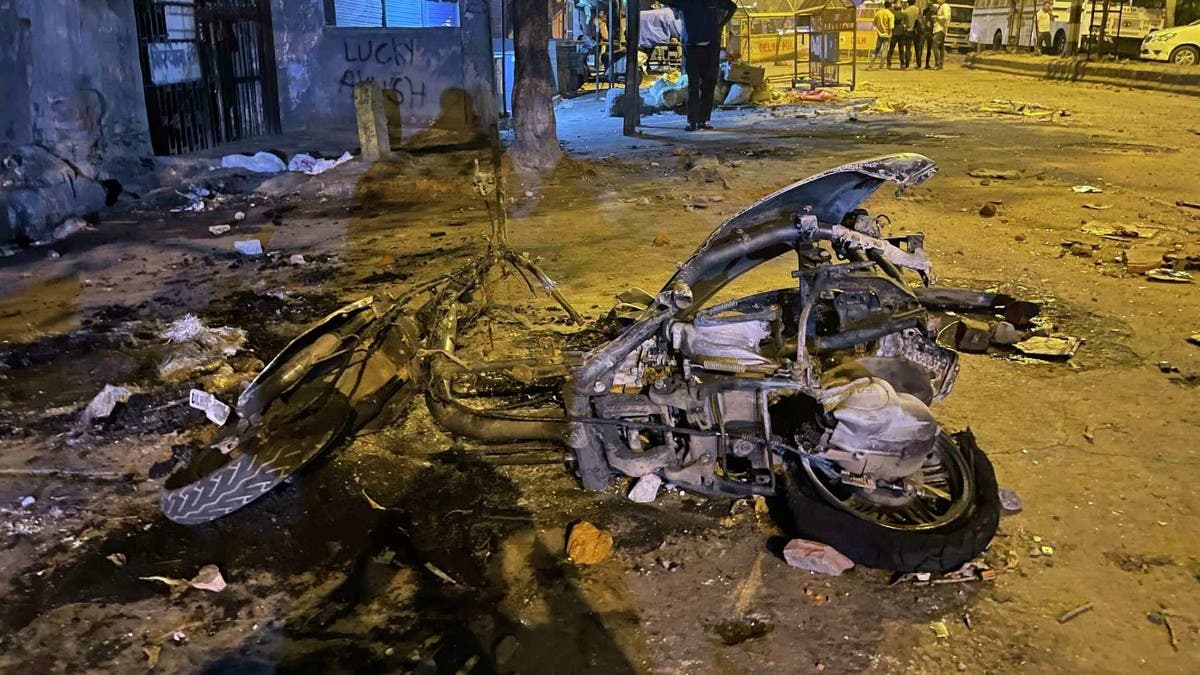Police in India’s capital have arrested 14 people after communal violence broke out during a Hindu religious procession, leaving several injured, local media reported on Sunday.
The suspects were arrested on charges of rioting and criminal conspiracy, among others, following the incident on Saturday night, said senior police officer Usha Rangnani, according to the Press Trust of India news agency.
For the latest headlines, follow our Google News channel online or via the app.
At least nine people, including eight police officers, were injured and are being treated in hospitals, the officer said.
Authorities say Hindu and Muslim groups in Jahangirpuri, a neighborhood in northwest Delhi, threw stones at each other during a religious procession celebrating the birth of the Hindu god Hanuman on Saturday night. Police are investigating the incident and it remains unclear what sparked the violence.
It was the first major violence to be reported in New Delhi since 2020 when 53 people died in a large-scale communal conflict amid tensions over a controversial citizenship law, an incident seen as the worst religious rioting in decades.
Delhi's police commissioner tweeted late Saturday night to say that the situation in the neighborhood was under control after additional forces were deployed to patrol the area.
The capital’s chief minister, Arvind Kejriwal, appealed for peace in the city and condemned the incident.
In videos posted on social media, streets in Jahangirpuri are seen littered with broken glass and stones while photos show heavily damaged vehicles.
The incident in New Delhi comes after similar reports of communal violence and hate speech in a handful of other Indian states over the past week.
On April 10, a number of people were injured in violence after anti-Muslim songs were blared through speakers during a procession to mark the birth of the Hindu god Ram in the central state of Madhya Pradesh, local media reported. A day later in the western state of Gujarat, one person died and many others were injured in violence following the festival, prompting curfews and a ban on gatherings in some parts of the state.
The string of recent religious attacks has sparked outrage and sharp criticism of Prime Minister Narendra Modi’s Hindu nationalist Bharatiya Janata Party.
Communal violence in India is not new, with periodic clashes breaking out ever since the British partition of the Indian subcontinent in 1947, but observers say that religious polarization has risen under Modi, further deepening fault lines against minorities and heightening tensions.
On Saturday, leaders from 13 opposition parties wrote a statement urging Modi to condemn the wave of religious attacks and expressing concern over the “recent outburst of communal violence witnessed across several states.”
“We are extremely anguished at the manner in which issues related to food, dress, faith, festivals and language are being deliberately used by sections of the ruling establishment to polarize our society,” the leaders wrote.
Minorities minister rejects claims of rising bigotry
Indians have the freedom to practice their faith and there is no growing intolerance between religious communities, the country’s minority affairs minister said in an interview published on Sunday amid spurts of religious riots in various parts of the country.
Minority Affairs Minister Mukhtar Abbas Naqvi, who is part of Prime Minister Narendra Modi’s Hindu nationalist government, told The Economic Times newspaper that “fringe elements, who are unable to digest the peace and prosperity in the country, try to
defame India’s inclusive culture and commitment.”
Some university students in the capital New Delhi fought on campus over non-vegetarian food being served in the hostel during a week that Hindus consider auspicious.
“It is not the job of the government to tell the people what to eat or not. Every citizen has freedom in the country to eat food of their choice,” Naqvi said.
In recent years, the rule of Modi’s Hindu nationalist Bharatiya Janata Party has emboldened hardline religious groups to take up causes that they say defend Hindu faith.
Earlier this month, a controversy erupted over Muslim students wearing the hijab headscarves to school in the southern state of Karnataka, that houses the country’s tech capital Bengaluru.
“There is no ban on hijab in India. One can wear hijab in markets and other places. But every college or institution has a dress code, discipline, and decorum. We will have to accept this. If you do not like it, you can choose a different institution,” said Naqvi.
Read more: Schools in India’s tech hub Bangalore receive bomb threats

 World3 years ago
World3 years ago
 World3 years ago
World3 years ago
 Business1 year ago
Business1 year ago
 Entertainment7 years ago
Entertainment7 years ago
 World7 years ago
World7 years ago
 Entertainment7 years ago
Entertainment7 years ago






